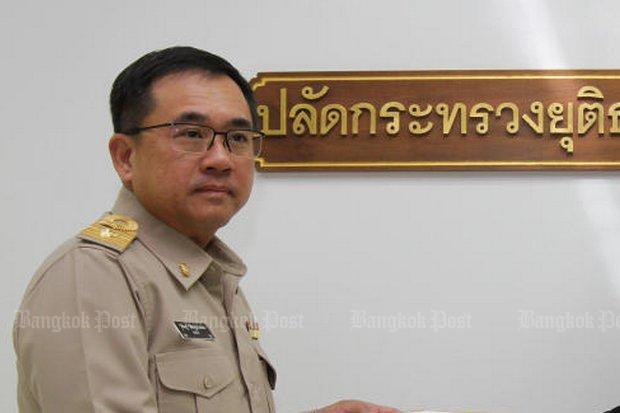ASEAN law enforcement officials must work together to create a channel where they can communicate and share information about cybercrimes as the offences are transnational, according to Thailand’s Permanent Secretary for Justice Wisit Wisitsora-at.
Mr Wisit was speaking I the Asean Economic Community (AEC) to exchange law enforcement measures among ASEAN members to combat computer crimes in Bangkok yesterday (June 27). The event was attended by representatives from 10 ASEAN nations as well as experts on cybercrime suppression.
Wisit said each country should also amend its laws to accommodate the efforts. Thailand’s own Computer Crimes Act comes with severe punishments but the challenge for authorities was to make arrests before cybercriminals – who can act remotely and unseen from abroad – could cause widespread damage, he said.

"The world has realised that cyber crimes are a new trend. Even the United Nations pays attention to the issue and considers that we should not wait until the situation becomes critical and then find ways to deal with the problem,” Mr Wisit said, quoted by Bangkok Post.
DSI chief Pol Colonel Paisit Wongmuang said the Asean co-operation to prevent and combat cybercrimes would help boost the capacities of international agencies and each country’s law enforcement, especially via linking and exchange of information.
According to the Department of Special Investigation, most cybercrimes committed in Thailand involve call centre scams, which have caused substantial damage to many customers over several years.

The Nation reports the Royal Thai Police specialised centre to suppress crimes committed via phones and electronic media reported 452 cases covering damage worth about Bt254 million since December.
Paisit said police had issued 547 arrest warrants and arrested 396 suspects. Thai police are also co-ordinating with their counterparts in other countries to crackdown on scamming gangs, but the problem still persists, he added.
In the Philippines and Indonesia, most cybercrimes are cryptocurrency investment fraud, he said.
In Australia, 48 per cent of cybercrime comprises fraudsters creating emails or websites mimicking authentic public sector websites to steal personal information, while the private sector is targeted by hackers stealing credit card information, he said.


















